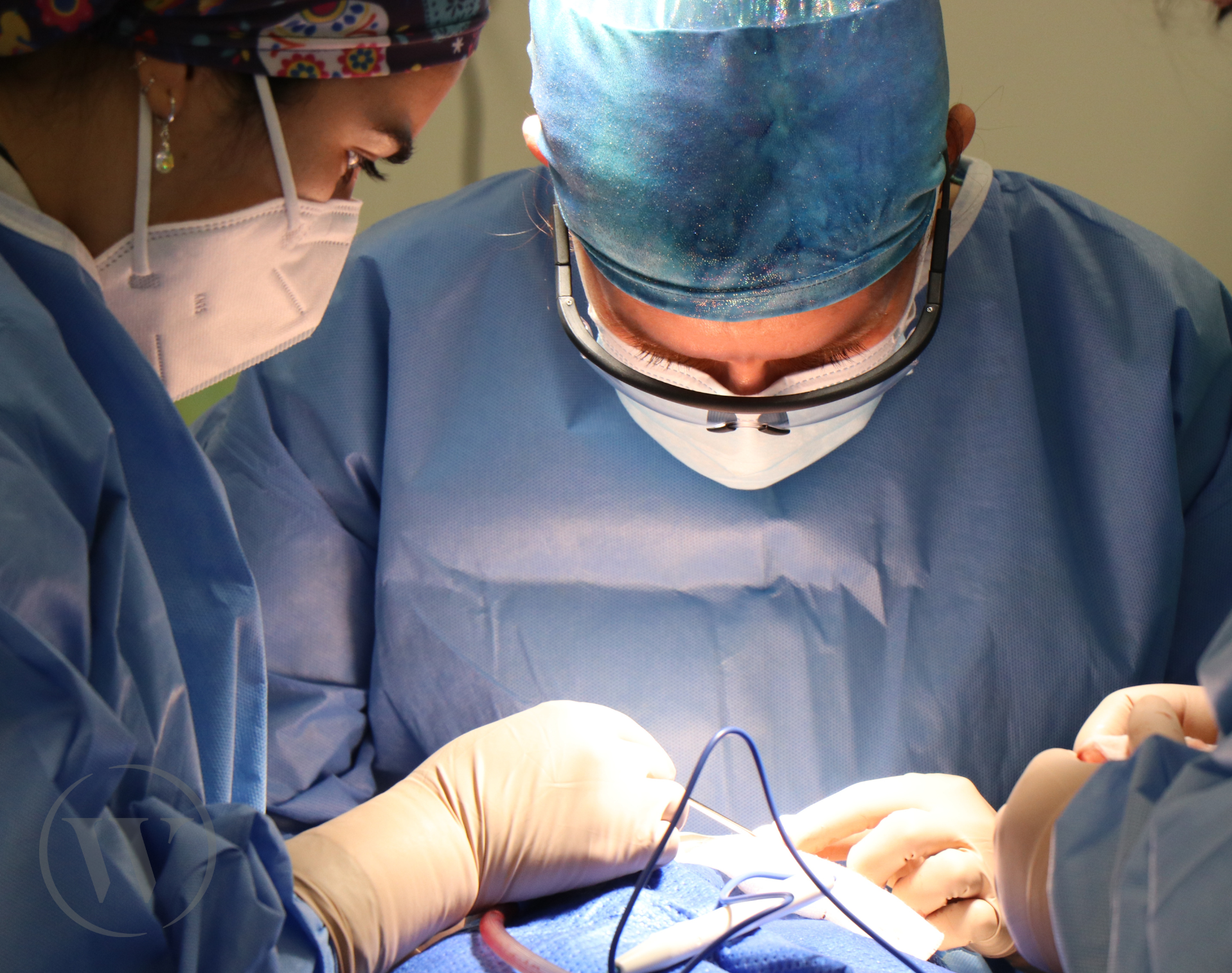Miss Katherine George
Consultant Oral & Maxillofacial Surgeon
Specialist expertise: Cosmetics, Oral & Maxillofacial, Salivary Gland Surgery, Ear, Nose and Throat, Paediatrics.
Facial trauma describes injuries such as fractures, dislocations and soft tissue damage that affect areas of the face such as the cheekbones, jaw and nose.

Facial trauma, also called maxillofacial trauma, is a catch-all term for traumatic injuries that affect any area of the face, including the cheekbones, orbital bones (bones around the eyes), upper and lower jaw, teeth and nose.
These kinds of injuries can not only alter your appearance but may also impair important functions such as your sight, breathing, eating and speaking.
At Welbeck, our maxillofacial specialists are experts in treating the full range of facial trauma injuries, including fractures, dislocations and soft tissue damage.
Some of the most common causes of facial trauma are:
A traumatic injury may be a fracture (bone break), dislocation, tooth loss or damage or soft tissue injury. In most cases, surgery is required to restore normal function and as well as improve appearance.
Some of the most common facial traumas requiring surgery are:
fracture to the ocular or orbital bones around the eyes (eye sockets), cheekbone, upper or lower jawbones, forehead or nose
broken teeth, dental injury or tooth loss
jaw dislocation
nasal cavity or sinus obstruction due to a nose fracture
damage to the hard and soft palate
soft tissue injuries to the face, including lacerations, cuts, scrapes, bruises, burns and tissue loss
The most appropriate treatment for a facial injury depends on several factors, including the type of injury, its severity and its cause.
Our maxillofacial specialists are experts in their field, with many years of experience in providing world-class care. If you need treatment for a facial injury, our consultants will create and deliver a personalised treatment plan, ensuring you receive the most appropriate care for the best possible outcome.
Surgical treatments for facial trauma include:
open reduction and fixation - this type of surgery is used to align broken bones in the face and hold them in the correct position with titanium mini plates as they heal
wiring - broken jaw bones may be wired together to stabilise them as they heal with jaw surgery
bone or skin grafts - these may be required in burn cases or where tissue has been lost
facial reconstruction - titanium hardware may be used to repair fractured eye sockets or cheekbones
rhinoplasty - commonly referred to as a nose job, rhinoplasty is performed to realign the nose and may also help improve breathing
suturing - stitches can be used to treat and close soft tissue damage, such as a split lip or eyebrow or forehead laceration
dental surgery - damaged teeth may need to be removed and replaced with implants
Facial trauma injuries are often complex, and treatment can span across several specialities.
With access to colleagues across other specialities, our consultants are also able to refer within the Welbeck ecosystem if needed to ensure you receive the best possible treatment as quickly as possible, all under one roof.
Our maxillofacial surgeons work in close collaboration with a multidisciplinary team of specialists such as ENT surgeons, plastic surgeons, orthodontists, restorative dentists, radiologists, neurosurgeons, psychiatrists and ophthalmologists to ensure you receive the comprehensive treatment you need to make the best possible recovery.
All appointments, testing, treatment, and follow-up appointments take place within our state-of-the-art facilities, enabling us to deliver accurate diagnostics and advanced treatments.
Your health is important to us, so we strive to offer same-day appointments whenever possible.
Our consultants are recognised by the major health insurance companies. If you have private health insurance, your treatment at Welbeck can begin once you have obtained authorisation. We also provide care to self-paying patients. Learn more about the different payment options at Welbeck.
Get in touch today to book an appointment.
Maxillofacial surgery is a speciality that combines medicine and dentistry. Maxillofacial surgeons specialise in the diagnosis and treatment of a wide range of conditions affecting the face, mouth, teeth and jaws, including traumatic facial injuries.
As with any kind of procedure, there are risks associated with maxillofacial surgery. Before performing any kind of surgery, your maxillofacial consultant will take you through all the possible risks so that you feel informed and confident throughout your time undergoing treatment at Welbeck.
We have brought together a team of leading oral and maxillofacial surgeons, ENT specialists, and dental experts to create our Oral & Facial Health team. These highly experienced clinicians are leaders in their field, dedicated to delivering exceptional patient care.